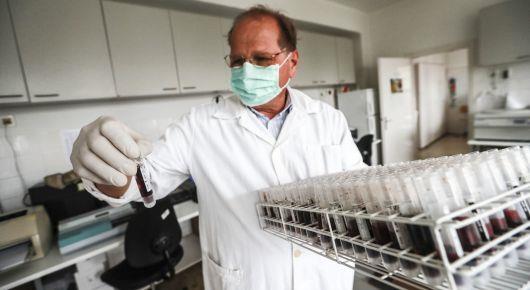FAO launches African swine fever preparedness online course for Europe

Although media attention is all about the human pandemic, African swine fever (ASF) is still a pressing issue. Rampaging throughout three continents, never before in history has the disease had such a wide distribution with so many millions of animals affected.
To help preparedness, FAO is launching an online training course in the English language, involving more than 450 animal health practitioners from 30 European countries that have already been selected. All European countries were previously invited to join this limited course, with nominations provided by Veterinary Services.
Starting today, the sessions will run through April and May.
African swine fever comes with huge economic costs and considerable trade disruptions, as well as seriously affecting rural livelihoods. “To optimize preparedness for, early detection of, and response against an African swine fever incursion, it is paramount to reach and train as many as possible first responders: the veterinarians,” said Daniel Beltran Alcrudo, FAO animal health specialist. “Any country in the world with a pig sector should be considered to be at a high and imminent risk of the incursion of the virus and should prepare accordingly.”
To ensure optimal preparedness, early detection, and response against an ASF incursion, it is paramount to reach and train veterinarians. With this in mind, FAO started by standardizing training materials, including presentations, guidelines, and other materials that can be easily translated and adapted to a country’s specifics, in addition to being quickly rolled out and reaching most national veterinarians through training-of-trainer (a cascade approach). This has already been implemented in all Balkan countries with success.
However, even with cascade training, FAO could not cope with the huge and growing demand for ASF training coming from both infected and at-risk countries. Therefore, it was decided to move to an online format, building on its obvious advantages: it is easy and cost-effective to scale up, can reach hundreds of people even in remote locations (as long as an internet connection is available), and allows trainees to learn at their own pace and at the most convenient time.
For the curricula, FAO’s Manual on ASF Detection and Diagnosis was used and further enhanced. The content was created by a team of ASF external and in-house experts, including the Friedrich-Loeffler-Institute, Lithuanian Veterinary Services, and input from FAO Reference Centre for ASF at INIA-CISA. The materials were then converted, thanks to EuFMD’s know-how, to adapt and deliver animal health training in an online format.
The pilot course was launched in November–December 2019, with an open call to colleagues from different disciplines from around the world, both in infected and not-infected countries. The main goal of this first round was to receive feedback to further improve the course. There was a high number of applicants, who were very active in providing feedback and suggestions. The current course has been reviewed along those lines.
“In the coming months, we will offer a Serbian version of the course for the Balkan region,” said Mark Hovari, FAO animal health specialist. A Russian-language version is also planned for later this year. In parallel, FAO’s Regional Office for Asia and the Pacific is adapting the course for their region.
The course
The tutored course is structured around seven training modules that cover a range of topics, such as the impact of the disease, clinical and laboratory diagnosis, epidemiology, outbreak investigation, control measures, biosecurity, and ASF in wild boar. The course starts with a webinar explaining how the training will be conducted and introduces the trainers through short technical presentations. Trainers are experts in either diagnostics, epidemiology, or control of ASF. Participant can access training materials, a discussion forum, recordings of the webinars, and a list of further resources and reading.
As the course is open for a duration of four weeks, a specific topic is covered each week using a discussion forum where participants and trainers can discuss and interact. Trainers post questions to challenge participants and deepen their understanding of the course material.
The course ends with a final course assessment and a closing webinar covering topics that were either difficult for that participant or have sparked the most discussion in the forum. Participants who finish all required tasks and pass the final course assessment are awarded a certificate. Finally, through the feedback section, participants can provide suggestions for further improvement.
22 April 2020, Budapest, Hungary
